Related Research Articles

Mary Carolyn "Jodi" Rell is an American former politician who served as the 87th governor of Connecticut from 2004 to 2011. Rell also served as the state's 105th lieutenant governor of Connecticut from 1995 to 2004 under Governor John G. Rowland, and became governor after Rowland resigned from office. She remains the most recent Republican governor of Connecticut.

Lesbian, gay, bisexual, transgender and queer (LGBTQ) people face difficulties in prison such as increased vulnerability to sexual assault, other kinds of violence, and trouble accessing necessary medical care. While much of the available data on LGBTQ inmates comes from the United States, Amnesty International maintains records of known incidents internationally in which LGBTQ prisoners and those perceived to be lesbian, gay, bisexual or transgender have suffered torture, ill-treatment and violence at the hands of fellow inmates as well as prison officials.
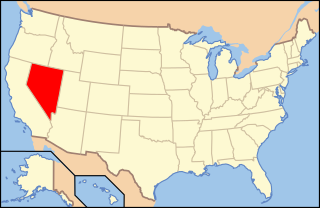
Lesbian, gay, bisexual, and transgender (LGBT) people in the U.S. state of Nevada enjoy the same rights as non-LGBT people. Same-sex marriage has been legal since October 8, 2014, due to the federal Ninth Circuit Court of Appeals ruling in Sevcik v. Sandoval. Same-sex couples may also enter a domestic partnership status that provides many of the same rights and responsibilities as marriage. However, domestic partners lack the same rights to medical coverage as their married counterparts and their parental rights are not as well defined. Same-sex couples are also allowed to adopt, and state law prohibits unfair discrimination on the basis of sexual orientation and gender identity, among other categories, in employment, housing and public accommodations. In addition, conversion therapy on minors is outlawed in the state.

Lesbian, gay, bisexual, and transgender (LGBT) persons in the U.S. state of Wyoming may face some legal challenges not experienced by non-LGBT residents. Same-sex sexual activity has been legal in Wyoming since 1977, and same-sex marriage was legalized in the state in October 2014. Wyoming statutes do not address discrimination on the basis of sexual orientation and gender identity; however, the U.S. Supreme Court's ruling in Bostock v. Clayton County established that employment discrimination against LGBT people is illegal under federal law. In addition, the cities of Jackson, Casper, and Laramie have enacted ordinances outlawing discrimination in housing and public accommodations that cover sexual orientation and gender identity.
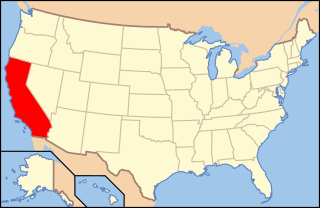
California is seen as one of the most liberal states in the U.S. in regard to lesbian, gay, bisexual, and transgender (LGBT) rights, which have received nationwide recognition since the 1970s. Same-sex sexual activity has been legal in the state since 1976. Discrimination protections regarding sexual orientation and gender identity or expression were adopted statewide in 2003. Transgender people are also permitted to change their legal gender on official documents without any medical interventions, and mental health providers are prohibited from engaging in conversion therapy on minors.

Illinois is seen as one of the most progressive states in the United States in regard to lesbian, gay, bisexual, and transgender (LGBT) rights and often viewed as one of the most liberal states in the Midwestern United States. Same-sex sexual activity has been legal since 1962, after Illinois became the first U.S. state to repeal its sodomy laws. Same-sex marriage was banned by statute in 1996, but has since been legalized after a law allowing such marriages was signed by Governor Pat Quinn on November 20, 2013 and went into effect on June 1, 2014. Civil unions have been recognized since 2011, and same-sex couples are also allowed to adopt. Additionally, discrimination on the basis of sexual orientation and gender identity is banned in employment, housing, credit and public accommodations, and conversion therapy on minors has been outlawed since 2016.

The establishment of lesbian, gay, bisexual, and transgender (LGBT) rights in the U.S. state of Connecticut is a recent phenomenon, with most advances in LGBT rights taking place in the late 20th century and early 21st century. Connecticut was the second U.S. state to enact two major pieces of pro-LGBT legislation; the repeal of the sodomy law in 1971 and the legalization of same-sex marriage in 2008. State law bans unfair discrimination on the basis of sexual orientation and gender identity in employment, housing and public accommodations, and both conversion therapy and the gay panic defense are outlawed in the state.

In the District of Columbia, lesbian, gay, bisexual, and transgender (LGBT) people enjoy the same rights as non-LGBT people. Along with the rest of the country, the District of Columbia recognizes and allows same-sex marriages. The percentage of same-sex households in the District of Columbia in 2008 was at 1.8%, the highest in the nation. This number had grown to 4.2% by early 2015.

Lesbian, gay, bisexual, and transgender (LGBT) rights in the U.S. state of Washington have evolved significantly since the late 20th century. Same-sex sexual activity was legalized in 1976. LGBT people are fully protected from discrimination in the areas of employment, housing and public accommodations; the state enacting comprehensive anti-discrimination legislation regarding sexual orientation and gender identity in 2006. Same-sex marriage has been legal since 2012, and same-sex couples are allowed to adopt. Conversion therapy on minors has also been illegal since 2018.

Lesbian, gay, bisexual and transgender (LGBT) rights in the U.S. state of Iowa have evolved significantly in the 21st century. Iowa began issuing marriage licenses to same-sex couples on April 27, 2009 following a ruling by the Iowa Supreme Court, making Iowa the fourth U.S. state to legalize same-sex marriage. Same-sex couples may also adopt, and state laws ban discrimination based on sexual orientation or gender identity in employment, housing and public accommodations.

Lesbian, gay, bisexual, and transgender (LGBT) people in the U.S. state of Oregon have the same legal rights as non-LGBT people. Same-sex sexual activity is legal in Oregon, and same-sex marriage has been legal in the state since May 2014 when a federal judge declared the state's ban on such marriages unconstitutional. Previously, same-sex couples could only access domestic partnerships, which guaranteed most of the rights of marriage. Additionally, same-sex couples are allowed to jointly adopt, and discrimination based on sexual orientation and gender identity in the areas of employment, housing and public accommodations is outlawed in the state under the Oregon Equality Act, enacted in 2008. Conversion therapy on minors is also illegal.
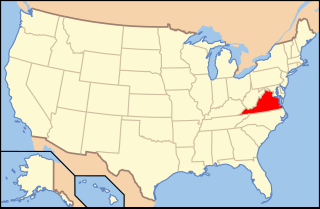
Lesbian, gay, bisexual, and transgender (LGBT) people in the Commonwealth of Virginia enjoy the same rights as non-LGBT persons. LGBT rights in the state are a recent occurrence with most improvements in LGBT rights occurring in the 2000s and 2010s. Same-sex marriage has been legal in Virginia since October 6, 2014, when the U.S. Supreme Court refused to consider an appeal in the case of Bostic v. Rainey. Effective July 1, 2020, there is a state-wide law protecting LGBT persons from discrimination in employment, housing, public accommodations, and credit. The state's hate crime laws also now explicitly include both sexual orientation and gender identity.
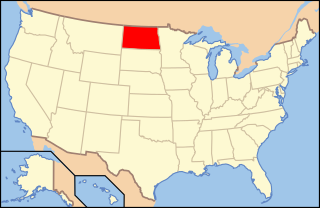
Lesbian, gay, bisexual, and transgender (LGBT) persons in the U.S. state of North Dakota may face some legal challenges not experienced by non-LGBT residents. Same-sex sexual activity is legal in North Dakota, and same-sex couples and families headed by same-sex couples are eligible for all of the protections available to opposite-sex married couples; same-sex marriage has been legal since June 2015 as a result of Obergefell v. Hodges. State statutes do not address discrimination on account of sexual orientation or gender identity; however, the U.S. Supreme Court's ruling in Bostock v. Clayton County established that employment discrimination against LGBT people is illegal under federal law.

Lesbian, gay, bisexual, and transgender (LGBT) persons in the U.S. state of Nebraska may face some legal challenges not experienced by non-LGBT residents. Same-sex sexual activity is legal in Nebraska, and same-sex marriage has been recognized since June 2015 as a result of Obergefell v. Hodges. The state prohibits discrimination on account of sexual orientation and gender identity in employment and housing following the U.S. Supreme Court's ruling in Bostock v. Clayton County and a subsequent decision of the Nebraska Equal Opportunity Commission. In addition, the state's largest city, Omaha, has enacted protections in public accommodations.
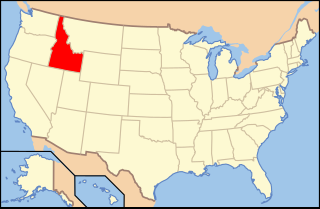
Lesbian, gay, bisexual and transgender (LGBT) people in the U.S. state of Idaho face some legal challenges not experienced by non-LGBT people. Same-sex sexual activity is legal in Idaho, and same-sex marriage has been legal in the state since October 2014. State statutes do not address discrimination based on sexual orientation and gender identity; however, the U.S. Supreme Court's ruling in Bostock v. Clayton County established that employment discrimination against LGBT people is illegal under federal law. A number of cities and counties provide further protections, namely in housing and public accommodations. A 2019 Public Religion Research Institute opinion poll showed that 71% of Idahoans supported anti-discrimination legislation protecting LGBT people, and a 2016 survey by the same pollster found majority support for same-sex marriage.

LGBT history in the United States spans the contributions and struggles of lesbian, gay, bisexual, and transgender (LGBT) people, as well as the LGBT social movements they have built.
The state of Texas, located in the south in the United States, contains a large community of LGBTQ+ citizens. More specifically, the city Austin, Texas has the third largest population of LGBTQ+ people based on the size of the city. Austin, Texas, and Texas in general, is home to several icons of the LGBTQ+ community such as Karamo Brown, co-founder of the LGBTQ+ group "Queer Eye" and Demi Lovato, a queer artist and activist. There is history of heavy violence against the LGBTQ+ community within Texas such as riots, as well as liberation and parades celebrating those within the community.

LGBT employment discrimination in the United States is illegal under Title VII of the Civil Rights Act of 1964; employment discrimination on the basis of sexual orientation or gender identity is encompassed by the law's prohibition of employment discrimination on the basis of sex. Prior to the landmark cases Bostock v. Clayton County and R.G. & G.R. Harris Funeral Homes Inc. v. Equal Employment Opportunity Commission (2020), employment protections for LGBT people were patchwork; several states and localities explicitly prohibit harassment and bias in employment decisions on the basis of sexual orientation and/or gender identity, although some only cover public employees. Prior to the Bostock decision, the Equal Employment Opportunity Commission (EEOC) interpreted Title VII to cover LGBT employees; the EEOC determined that transgender employees were protected under Title VII in 2012, and extended the protection to encompass sexual orientation in 2015.
On May 15, 1988, Wethersfield, Connecticut resident Richard Reihl, a gay man, was murdered by two teenagers. Reihl's murder has been cited as a watershed moment for the LGBT community in Connecticut, and the anger surrounding his killing led to the passing of hate crime legislation in the state.
Canon Clinton Robert Jones Jr. was an Episcopal priest and gay rights activist based in Hartford, Connecticut.
References
- 1 2 McFadden, Robert D. (2008-10-10). "Gay Marriage Is Ruled Legal in Connecticut". The New York Times. ISSN 0362-4331 . Retrieved 2023-11-05.
- 1 2 3 4 5 6 7 "Connecticut Sodomy Law". Hrc.org. 2007-03-08. Archived from the original on 2013-04-09. Retrieved 2013-12-05.
- 1 2 3 "The History of Sodomy Laws in the United States, Connecticut". glapn.org.
- ↑ Katz, Jonathan Ned. "Legal Case: Plaine Executed, New Haven, 1646 · Colonial America: The Age of Sodomitical Sin, 1607-1783". OutHistory. Retrieved 2023-11-05.
- 1 2 3 4 5 6 7 8 9 10 "A Brief History of Connecticut's LGBTQ Community". Connecticut Museum of Culture and History. Retrieved 2023-11-03.
- ↑ "Charlie Chan Picture tops Capitol Bill", Hartford Courant, April 18, 1931, p 8.
- ↑ Laska, Alexander (2010-06-18). "After 71 years, oldest U.S. gay bar to close". Connecticut Post. Retrieved 2023-11-05.
- 1 2 Hewitt, Cate (2019-10-07). "Palmer Warner House in East Haddam Opens As Trailblazing LGBT Site". CT Examiner. Retrieved 2023-11-05.
- 1 2 "Alan L. Hart: Pioneer in Medicine and Transgender History". Connecticut History | a CTHumanities Project. 2023-06-01. Retrieved 2023-11-06.
- ↑ "2 Connecticut sites named among 10 newest national historic landmarks". fox61.com. November 2, 2016. Retrieved 2023-11-06.
- ↑ Galanis, Eve (2022-05-03). "Canon Clinton Jones: A Revolutionary Figure in Connecticut's LGBTQ+ History". Connecticut History | a CTHumanities Project. Retrieved 2023-12-20.
- 1 2 3 4 5 6 7 Craven, TinaMarie (2021-06-18). "CT has historically been ahead of the curve in defending LGBTQ rights". Connecticut Post. Retrieved 2023-11-03.
- ↑ Smith, Laura (2020-03-02). "Resources in the Archives about LGBTQ+ Activism in Connecticut". Archives and Special Collections Blog. Retrieved 2023-11-06.
- ↑ Thornton, Steve (2015-09-16). "Kalos Society: Early Gay Liberation". The Shoeleather History Project. Retrieved 2023-11-03.
- 1 2 "Kalos Society: Connecticut's First Modern LGBTQ+ Activist Organization". Connecticut History | a CTHumanities Project. 2022-06-01. Retrieved 2023-11-04.
- ↑ Normen, Elizabeth (2020-08-14). "An Early Advocate for Connecticut's Gay Community". Connecticut Explored. Retrieved 2023-12-18.
- 1 2 3 4 5 Mann, William J. (2020-11-23). "A Brief History of Connecticut Gay Media". Connecticut Explored. Retrieved 2023-11-05.
- 1 2 Gellman, Lucy (September 9, 2016). "LGBTQ History Comes Alive". New Haven Independent.
- ↑ Dunne, Susan (2020-10-30). "Gay Spirit Radio was Connecticut's 'original queer social media'. It's celebrating 40 years on Thanksgiving". Hartford Courant. Retrieved 2023-11-04.
- ↑ Krajcik, Katie (2023-06-27). "Then and now: Pride celebrations span decades in Connecticut". NBC Connecticut. Retrieved 2023-11-06.
- 1 2 3 4 Weiss, Abby (2023-06-21). "New Haven walking tour uncovers centuries of LGBTQ history". New Haven Register. Retrieved 2023-11-03.
- ↑ Dunne, Susan (2016-05-27). "CT LGBT Film Festival Marks 29 Years". Baltimore Sun. Retrieved 2023-11-05.
- ↑ "This Week in Connecticut History: Reihl murder case changes LGBTQ laws". WTNH.com. 2023-05-29. Retrieved 2023-11-03.
- 1 2 "Eighteen Years in the Making: Connecticut's 1991 Gay Rights Law". Connecticut History. 2022-10-03. Retrieved 2023-11-03.
- ↑ Kearney, Brendan (2003-05-07). "Aldermen reject domestic partnership proposal". Yale Daily News. Retrieved 2023-11-05.
- ↑ Reese, Phil (2011-07-07). "Connecticut adds gender identity to non-discrimination laws". www.washingtonblade.com. Retrieved 2023-11-06.
- ↑ Skalka, Liz (2017-11-09). "Matherne becomes Stamford's first transgender lawmaker". StamfordAdvocate. Retrieved 2023-11-06.
- 1 2 "Connecticut Will Be the FIRST State to Officially House Trans Inmates by Gender Identity". Them. 2018-05-29. Retrieved 2023-11-06.
- ↑ Figueroa IV, Daniel; DaRosa, Andrew (2022-06-29). "A look at the culture of gay bars and LGBTQ nightlife in CT". CT Insider. Retrieved 2023-11-03.
- ↑ Dunne, Susan (2023-01-23). "Facing higher levels of persecution, LGBTQ activists come together to launch new organization: Equality Connecticut". Hartford Courant. Retrieved 2023-11-03.
- ↑ "Connecticut first state to partner with International LGBTQ+ Travel Association". fox61.com. June 21, 2022. Retrieved 2023-11-03.
- ↑ "Connecticut's next state treasurer makes history for LGBTQ community". Maine Public. 2022-11-09. Retrieved 2023-11-03.
- ↑ "Erick Russell Shatters Lavender Ceiling; First Black LGBTQ Person Ever Elected Statewide in U.S. History". LGBTQ+ Victory Fund. Retrieved 2023-11-03.
- ↑ Keith, K. (2023-01-08). "Erick Russell Makes History as the First Black Gay Statewide Elected Official in Connecticut". Gaye Magazine. Retrieved 2023-11-03.
- ↑ "For first time ever, Trans Pride Flag flies over Connecticut Capitol". Hartford Courant. 2023-03-31. Retrieved 2023-11-03.